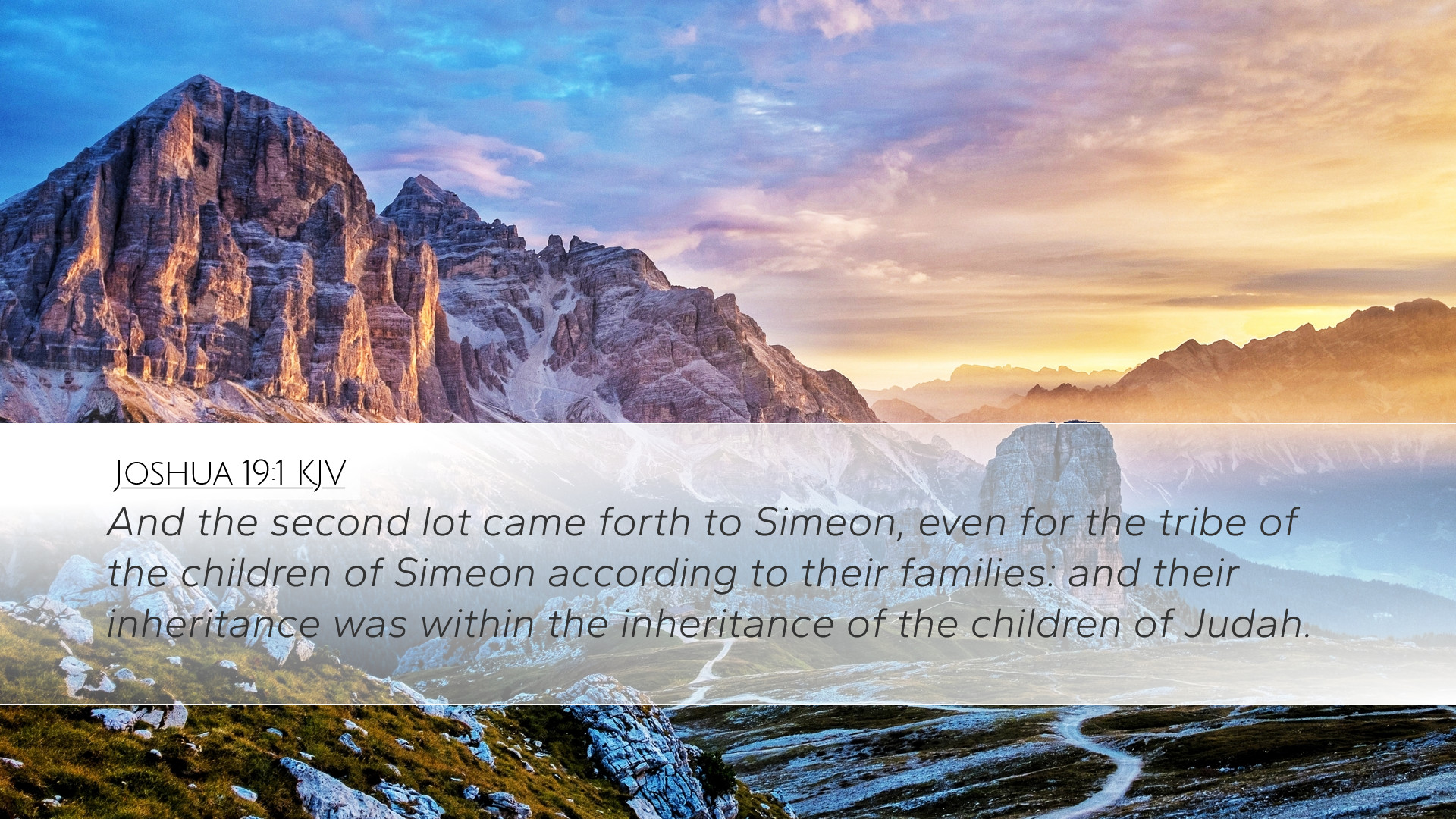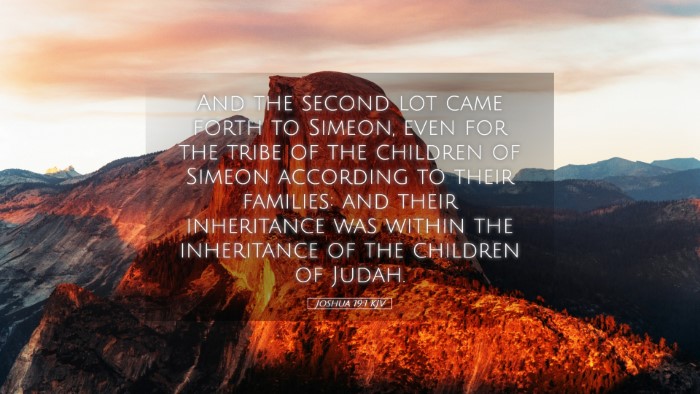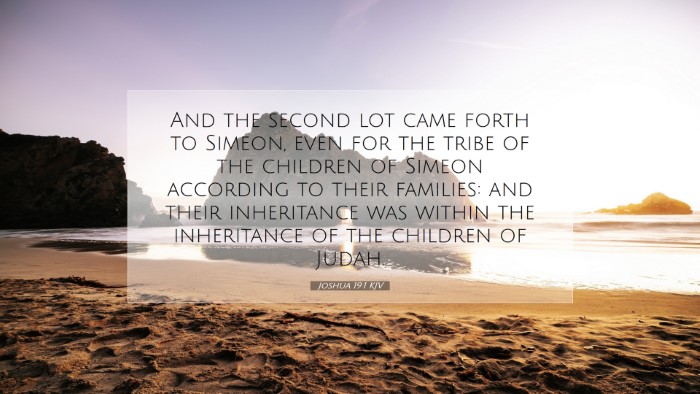Commentary on Joshua 19:1
Joshua 19:1: "And the second lot came forth to Simeon, even for the tribe of the children of Simeon according to their families: and their inheritance was within the inheritance of the children of Judah."
Introduction
This verse marks a significant point in the narrative of the division of the land among the tribes of Israel after their conquest of Canaan. It is essential for theological reflection as it touches upon themes of inheritance, identity, and divine providence.
Historical Context
The allocation of land is not merely a matter of geography; it is imbued with cultural, familial, and spiritual significance. Ancient Israel saw land as a direct blessing from God, an inheritance promised to the descendants of Abraham, Isaac, and Jacob. Each tribe's portion reflected their unique role and identity within the overarching narrative of Israel’s covenantal relationship with God.
Insights from Matthew Henry
Matthew Henry elaborates on the importance of Simeon's inheritance. He notes that the tribe of Simeon was not given a large portion of land, and their allotment was situated within the territory of Judah:
- Significance of Proximity: Henry indicates that being surrounded by Judah could symbolize both a blessing and a challenge. The larger tribe of Judah had the strength and resources that could assist Simeon.
- Divine Sovereignty: The allocation is presented as an act of divine sovereignty; the Lord determined the extent of each tribe’s inheritance.
- Humility in Inheritance: He highlights a lesson in humility, suggesting that sometimes God's plan involves limitations to cultivate dependence on Him.
Insights from Albert Barnes
Albert Barnes offers a critical view of the territorial assignment to Simeon. He emphasizes:
- Tribe of Simeon's Decline: Barnes points out that Simeon’s fortunes had declined since they were among the least populous tribes. Their location within Judah could lead them to a form of overshadowing, which may reflect the tribe’s diminishing influence.
- Spiritual Implications: He underscores the spiritual implications of what it means to live within another tribe’s inheritance, suggesting that Simeon had the opportunity to rely on Judah’s strength, yet it required faithfulness to God's commandments.
- Distribution of Lots: The casting of lots emphasizes God's providential hand at work in determining territorial borders.
Insights from Adam Clarke
Adam Clarke provides further theological depth by discussing the broader implications of Simeon’s inheritance:
- Symbolism of Inheritance: Clarke suggests that the notion of inheritance reflects the believer's transition from spiritual poverty to wealth in God’s promises. This mirrors the Christian life—a call to find identity and belonging in Christ (Colossians 3:3).
- Unity Among Tribes: He highlights the necessity for tribes to coexist harmoniously as part of a unified nation. The dynamics within the land symbolize the unity expected in the body of Christ.
- Lessons in Contentment: Clarke notes that while each tribe has its unique portion, there's a call for contentment and gratitude in what God has provided.
Theological Reflections
This verse infuses theological reflection on the nature of God's gifts. The smaller inheritance given to Simeon can represent God's intention to remind His people that:
- All gifts come from His grace: No matter the size of the inheritance, every gift is an outpouring of His grace.
- Community and interdependence: Just as the tribes needed one another, so too does the church today require a spirit of cooperation and mutual support.
- Faithfulness with little: The story of Simeon encourages believers to be faithful in small things, trusting God for greater purposes.
Application for Modern Believers
Pastors, students, and scholars can derive several practical applications from Joshua 19:1:
- Understanding God’s Plan: Acknowledge God's sovereignty in all areas of life and trust in His wisdom regarding our respective "inheritances."
- Emphasizing Community: Foster relationships within the church that reflect the dependence upon one another just as Simeon was dependent on Judah.
- Encouragement to Grow: In a world that often measures success by size or visibility, embrace the call to Faithfulness and effectiveness within our assigned roles.
Conclusion
Joshua 19:1 encapsulates profound truths about inheritance, community, and divine sovereignty. By studying the insights of Matthew Henry, Albert Barnes, and Adam Clarke, one can appreciate the depth of theological significance that this seemingly simple verse conveys. It serves as a reminder that every portion of our lives is designed with purpose and that God’s plans require our faith and cooperation as we walk together in unity and strength.


